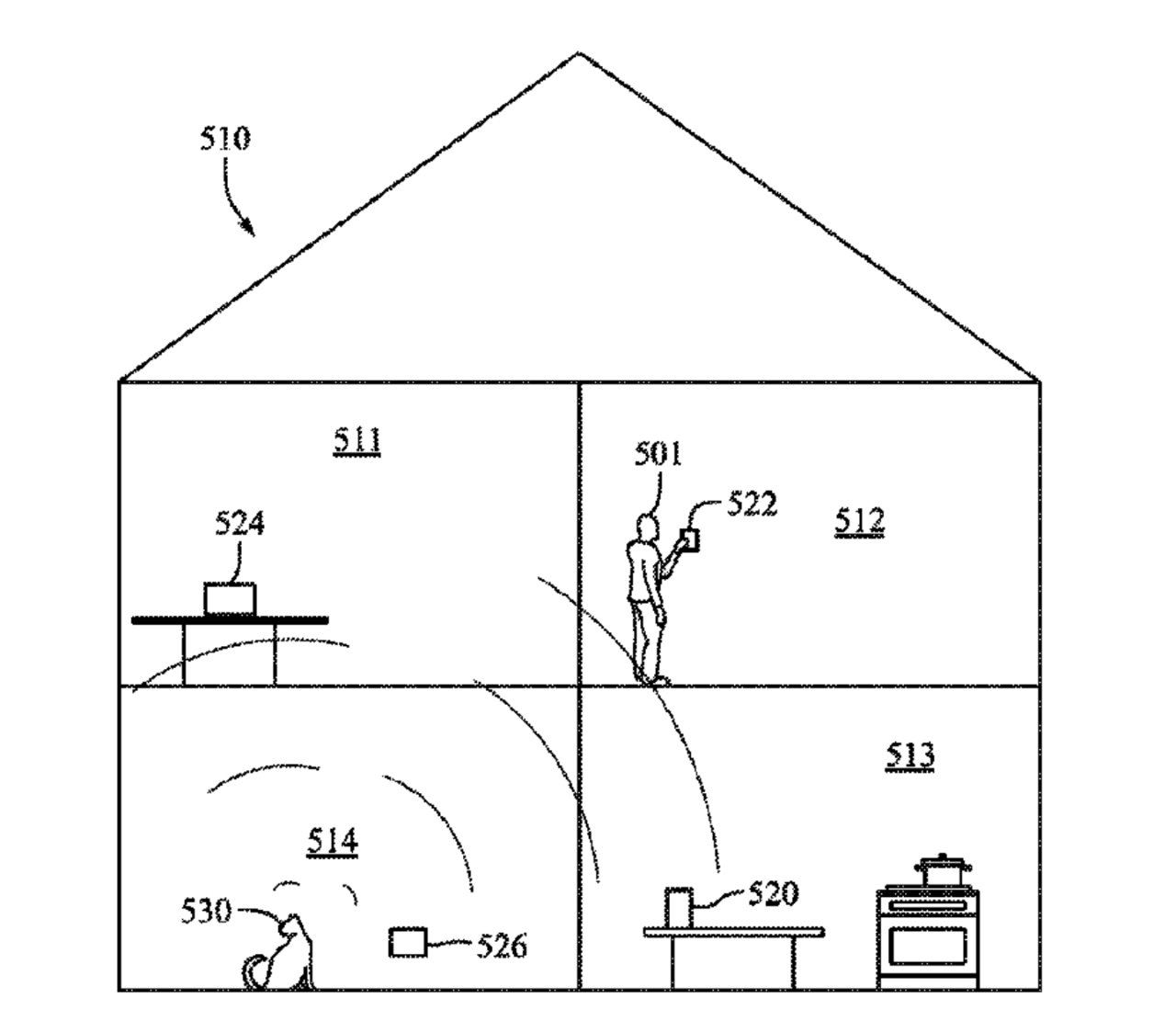Apple wants homes to be filled with Apple devices that talk to each other — and listen, too. (Source: Apple)
If you’re reading this, you’ve probably got a lot of Apple devices in your house. Apple is working on technology to get them all to listen to your house, and tell you at your desk when something is going on in another room.
If your house is not already full of Apple devices, then Apple would very much like to change that — and it’s looking at one way of making it very appealing. For Apple has been researching how any one of your devices could detect and recognize any other one — and what those other devices are hearing.
So if your baby cries in the bedroom while you’re making up formula in the kitchen, perhaps the HomePod mini on your bedside table could send an alert to your Apple Watch. Or maybe the iPad in your kitchen could recognize that your kettle has boiled and so ping your iPhone to say get down here and make the tea.
The newly-granted patent, “Home sound localization and identification,” builds on the existing ability of Apple devices to recognize the sound of smoke alarms. It builds on sound recognition and adds in location awareness, so that any one device can tell any other device where a sound is coming from.
The location may not sound especially useful as you should know where your baby is, and you’ll remember where you put the kettle on a couple of minutes ago. But such a system could, for instance, recognize a front door bell and send an alert to someone who is hard of hearing.
This has the potential to work simply because of how, as Apple says in its patent, “the availability of these devices has allowed them to become ubiquitous in our lives and homes.” Apple argues that the devices “can collect and access information about their surroundings and environment,” too.
However, it also maintains that “current devices may not be able to utilize this computing power and information to provide solutions to many problems and questions a user may experience in day-to-day life.” Consequently, Apple claims that “a need exists to use the capabilities and ubiquity of electronic devices in new ways to solve heretofore unaddressed everyday problems.”
When a sound fits certain characteristics, such as type or volume, then the device can act. “In use, one or more of the devices can detect a sound and transmit one or more signals corresponding to the detected sound to the processor,” says Apple.
“The processor can be configured to determine a physical location of origin of the sound based at least in part on the received signals,” it continues, “as well as additional information that can be collected or received by the system, such as the locations of users or objects in the space, the time of day, and/or calendar events.”
So if you have a party in your calendar, for instance, devices might set themselves so that only louder sounds get recognized.
All of this means that your Apple devices will be listening all the time, and as with every recent Apple patent, the text includes reference to the need for privacy. Given that they are listening, the devices could be listening out only for specific sounds, such as alarms, kettles boiling, and so on, and also ignore general background noises.
But, unusually, the patent does give room for “targeted content” to be delivered by devices. The suggestion is that this could include advertising, but the patent focuses instead on health benefits.
“For instance, health and fitness data may be used to provide insights into a user’s general wellness, or may be used as positive feedback to individuals using technology to pursue wellness goals,” it says. “The present disclosure contemplates that the entities responsible for the collection, analysis, disclosure, transfer, storage, or other use of such personal information data will comply with well-established privacy policies and/or privacy practices.”
Where the patent is not clear is in how this health and fitness information fits with the rest of this idea. There’s a suggestion that it just means giving “positive feedback to individuals using technology to pursue wellness goals.”
So perhaps that’s just that at certain times of day some or all of your devices nag you. Or conceivably it could be that if your Apple TV 4K doesn’t hear you cursing enough while playing Apple Fitness+ that it tells your partner that you’re slacking.
This patent is credited to Paul G. Puskarich and Fiona P. O’Leary. Puskarich has previously worked on patents regarding what’s called focused listening.



